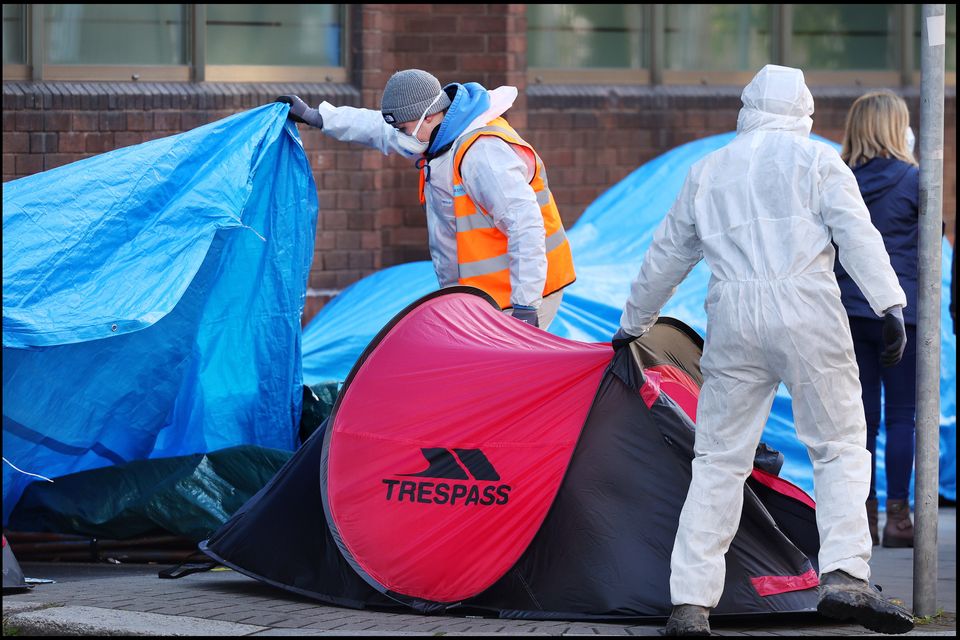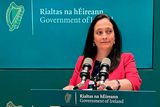Editorial: Public tolerance of immigration is waning
Workers remove 'tent city' in Mount Street, Dublin, last week. Photo: Steve Humphreys
At the end of an extraordinary week that saw Ireland and Britain embroiled in an unseemly political and diplomatic argument over rising levels of immigration, both governments would be well advised to tone down the rhetoric and reset relations to something approximating normality. Today’s Sunday Independent/Ireland Thinks opinion poll lays bare the impact of last week’s row on the attitude of voters here — and it shows those attitudes to have hardened considerably in relation to immigration.
After a week when the Irish Government effected the removal of migrants from a makeshift campsite on the pavements and alleys in and around Mount Street, Dublin, and following Justice Minister Helen McEntee’s claim that around 80pc of migrants are arriving here from Britain via Northern Ireland, the poll finds a significant 15-point increase in public concern about this issue.
The consequences look set to become apparent when the public votes in local and European elections that are predicted to result in a rightward swing to candidates presenting a firm line on immigration here and throughout the continent of Europe. Politics will probably look very different after the elections on June 11 and 12. Foreign Affairs Minister Micheál Martin has referred to work the Government has to do to explain the complexities of immigration to the public. That is one of the failures of this administration, which is struggling with the hugely difficult task of managing an ever-growing crisis.
Today’s poll indicates the extent of the communications shortcomings, which can be set alongside a shortage of accommodation for asylum-seekers and a lack of early preparedness at the International Protection Office in Dublin to meet the challenge.
Among other poll findings is overwhelming support to send immigrants back to the UK, the setting up of checkpoints at the Border and the introduction here of a “Rwanda-style” policy, similar to that in the UK, to deter immigrants from coming here.
The Government has ruled out checkpoints, and Ireland and the EU are opposed to a Rwanda-style policy, favouring instead Europe’s new migration and asylum pact, but that is somewhat lost on the public, a growing number of whom are demanding immediate and increasingly strident action. If anything, there is a high level of confusion about the migration pact — another failure of government communication.
The Common Travel Area, which ensures the free movement of people between the UK and Ireland, is the arrangement by which both governments must resolve the issues that have arisen; wider still, agreement will have to be reached between the UK and the EU on immigration in which Ireland will have an important role to play.
Whether such agreements can be reached before a general election in the UK this autumn is unlikely; it may well fall to a future Labour government there to negotiate an agreed solution with Ireland, either before or after a general election here.
A resolution must be found, however, because as today’s poll shows, immigration as an issue is increasing in intensity and is sure to have a significant impact on the outcome of elections local, national and European over the next 12 months, almost certainly for the worse.
Join the Irish Independent WhatsApp channel
Stay up to date with all the latest news















